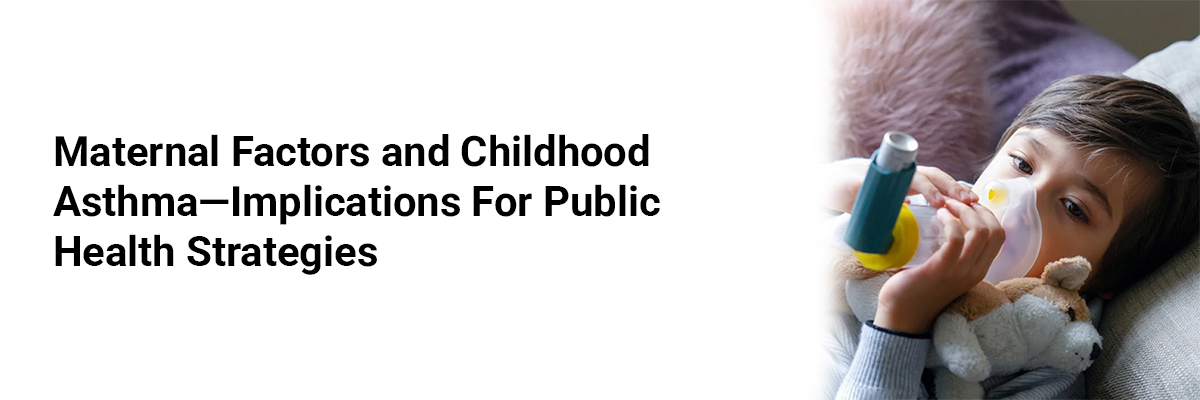
Maternal Factors and Childhood Asthma—Implications for Public Health Strategies
Asthma is a chronic inflammatory pulmonary disorder in childhood that presents a major public health concern due to its long-term impact on respiratory health. Understanding maternal risk factors that contribute to the development of asthma in early childhood is critical for prevention and management strategies.
Papandreou et al. recently evaluated the influence of various maternal factors—including sociodemographic, anthropometric, prenatal, and perinatal parameters—on the prevalence of asthma in preschool children.
The study analyzed data from 5,133 women and their preschool-aged children, reporting a 4.5% prevalence of childhood asthma. After adjusting for multiple confounders, several maternal factors were found to be significantly associated with increased asthma risk in children, including:
- Maternal age
- Pre-pregnancy overweight and obesity
- Cesarean section delivery
- Gestational diabetes
- Hypertension
- Lack of breastfeeding
These findings highlight the pivotal role of maternal health and perinatal practices in shaping respiratory outcomes in early childhood. Addressing such risk factors through comprehensive maternal and child health programs could reduce the prevalence of childhood asthma and improve long-term public health outcomes.
This study provides valuable evidence supporting the integration of maternal health optimization into asthma prevention strategies, underscoring the need for targeted policies and interventions.
Reference:
Papandreou D, Pavlidou E, Tyrovolas S, Mantzorou M, Andreou E, Psara E, Antasouras G, Vasios GK, Poulios E, Giaginis C. Relation of Maternal Pre-Pregnancy Factors and Childhood Asthma: A Cross-Sectional Survey in Preschool Children Aged 2–5 Years Old. Medicina. 2023; 59(1):179. https://doi.org/10.3390/medicina59010179













Please login to comment on this article